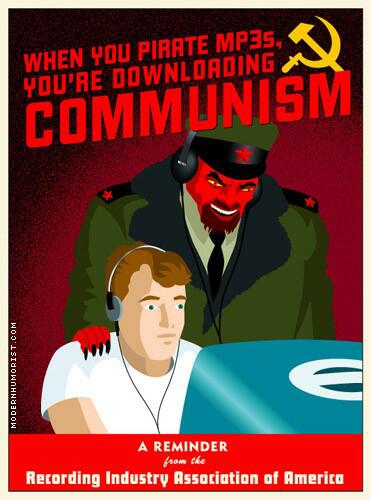
I'm not defending Stalinist Russia, but you have to admit it was a gift to future generations of graphic designers.
Gadget culture/consumer fetish pornography blog Gizmodo recently ran a fun piece about second-degree murder and six other crimes less expensive than pirating music. Obviously, you can’t go to jail for music piracy, and Gizmodo’s estimation that a year in prison is equivalent to a fine of about $50,000—the US median household income—ignores the intangible costs of spending that year married to a man named Eightball. Still, they’ve got a point. The recent finding against Jammie Thomas-Rasset—a single mother of four who shared 24 songs on Kazaa, and now has to pay Sony and other record labels $1.92 million—is laughably excessive. As usual, by “laughable,” I mean “horrifying.” I mean, come on—the woman’s name is “Jammie.” How is she not going to do whatever it takes to get the new Chamillionaire?* It turns out, though, that RIAA lawyers didn’t even have to prove Jammie downloaded any music. She almost certainly did, but the finding in the case ultimately rested on the 24 songs she had in her “Shared” folder. Whether she got them honestly or not, by making those songs available to others for download through Kazaa, Jammie violated copyright law—to the tune of $80,000 per song.
